Hard to believe it's almost the end of my November posts! It's an exciting week here in Lincoln--an application to finish and lots of grading to do, so here is a picture of a fine and fluffy owl.
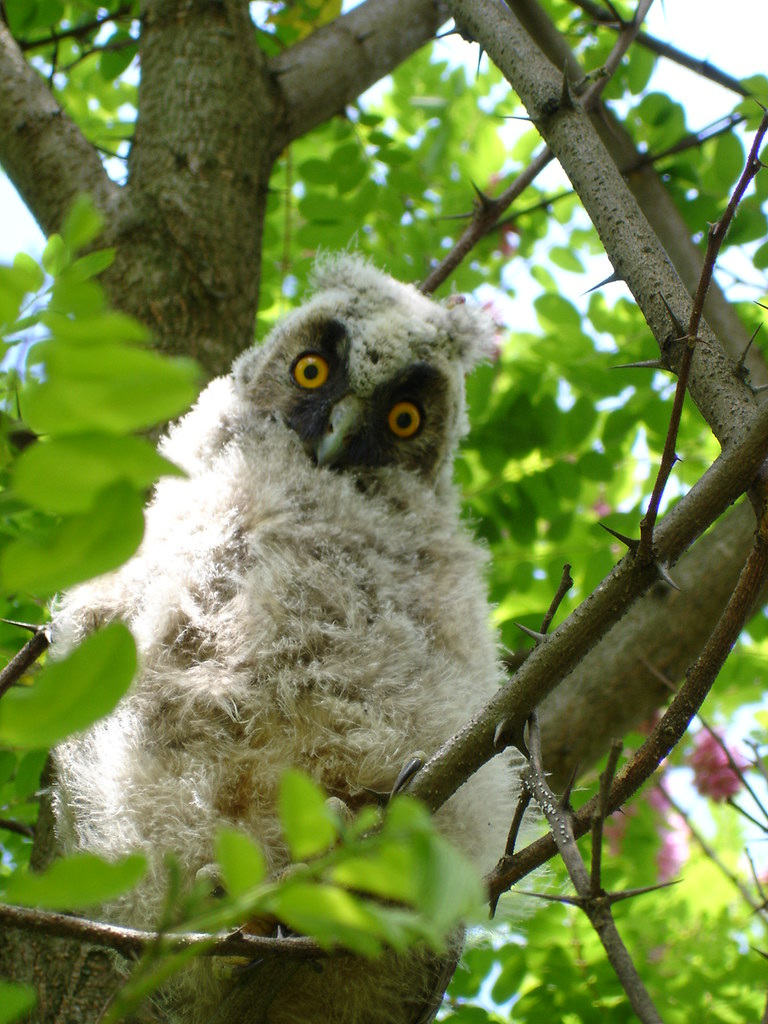 |
| "Owl" by g_kovacs is licensed under CC BY 2.0 |
Musings on late antiquity and the early Middle Ages | Poems, Crafts, and Food
We have had the first snow of the year here in Lincoln. To celebrate the peace it brings, I am listening to one of my favourite piano pieces and reading the following wintry poems.
Do join me.
 |
| "Trees and snow" by Lorenzoclick is licensed under CC BY-NC 2.0 |
 |
| "North Maine woods - snow" by thepiper351 is licensed under CC BY-NC 2.0 |
I love Barbara Emodi's flypaper thoughts; here is my own version
It's the season of the year where Lincoln Cathedral is lit up at night.
 |
| "Lincoln Cathedral at night" by IRGlover is licensed under CC BY-NC 2.0 |
Seeing its glow from the bottom of Steep Hill always brightens the cold and dark of late November.
 | |
| "Lincoln Cathedral at night" by IRGlover is licensed under CC BY-NC 2.0 |
Two years ago, I brought a pumpkin pie to work to celebrate Thanksgiving. I wasn't able to do that last year (the UK was just about to lock down again), but at the start of November my lovely colleagues began asking me about when Thanksgiving is, and would there be pumpkin pie again?
I was delighted to be able to bring a pie into work today, joined in the staff kitchen by the popup paper turkey I keep in my desk drawer, who makes an annual appearance on my desk every fourth Thursday in November.
 |
| Not my actual office but the turkey looks like this. "paper turkeys smell like holiday spirit" by Robert Couse-Baker is licensed under CC BY 2.0 |
Combine the pumpkin, sugar, spices, and salt; stir.
Add 3 large eggs and stir until well mixed.
Add 1 cup of evaporated milk and stir together well.
Pour into pie crust [use your favorite piecrust recipe or a storebought crust] and bake in 400 degree (180C) oven for 1 hour. After the first 30 minutes be sure and check to see if the pie is getting too brown, if it is then turn oven down to 375 degrees (about 160C) and if need be cover the edges with foil. Serve with a dab of whipped cream!
I'm teaching a class on ancient graffiti and someday when this plague is over, I want to visit some of the places we have discussed.
 |
"Pompeii" by Mark Vuaran is licensed under CC BY 2.0 |
Alongside choosing the cover for my book, I have also been writing a blurb for the back of it. Here it is!
 |
| Portrait of Venantius Fortunatus. Poitiers BM Ms 250 (136), f. 21v. |
This book explores how one early medieval poet survived and thrived amidst the political turbulence of sixth century Gaul—with a little help from his friends. Born in northern Italy, Venantius Fortunatus made his career writing for and about members of the Merovingian elite. Although he is no longer dismissed as an opportunistic poetaster who wrote undistinguished flattery for undeserving kings and aristocrats, his work remains unduly neglected. This book reframes Fortunatus as a writer uniquely suited to his times, a professional poet who addressed his contemporaries’ needs and wishes for the prestige and sophistication of Classical culture. His poems and letters enabled his aristocratic patrons to situate themselves in networks, which they made and maintained in order to navigate a post-imperial but not post-Roman world. Tracking continuities and changes in the terminology of friendship, this book demonstrates how this language shaped beliefs and behaviours, leading to social cohesion even within kingdoms repeatedly wracked by civil wars. It thus makes an important contribution to our understanding of friendship in the Middle Ages and offers a fresh look at the Frankish kingdoms of Merovingian Gaul.
Lawrence Alma-Tadema's painting The Education of the Children of Clovis captured my imagination from the first time I saw it. It captures fundamental details of the Frankish kingdoms ruled by the Merovingians.
 |
| The Education of the Children of Clovis, Lawrence Alma-Tadema. Wikipedia Commons. |
Present in the painting are the dynamism of the court, the violence of the kingdoms' repeated civil wars, the centrality of royal women, the clerics waiting to record history..and above all, the inseparable blend of Roman and Not Roman that makes the period absolutely intoxicating to study.
So when I finished writing my book, Friendship in the Merovingian Kingdoms: Venantius Fortunatus and His Contemporaries, there was only one image I wanted on the cover. This one, which says everything I hope that the book says.
Unfortunately, the painting is privately owned, and despite images of it being in the public domain, my publisher told me that copyright concerns would prevent us from using it.
I grasped at the straws of other Lawrence Alma-Tadema paintings, including this amazing depiction of some late Roman ladies but sadly these too presented copyright issues.
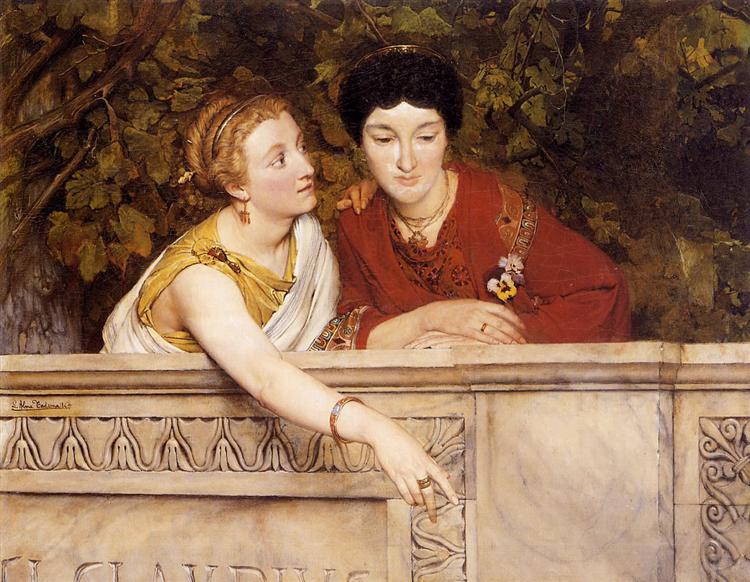 |
| Gallo-Roman Women, Lawrence Alma-Tadema. Source: Wikiart. |
Alma-Tadema's Venantius Fortunatus Reading His Poems to Radegunda, which is absolutely delightful, would be a very strong choice, but this was used on the cover of Michael Roberts' splendid 2009 book about Fortunatus, The Humblest Sparrow, and I wanted my book to have its own image.
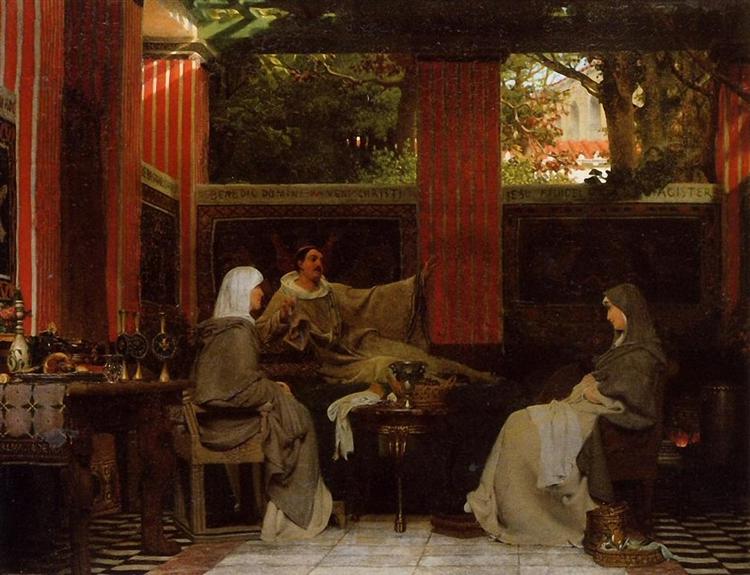 |
| Source: Wikiart. |
(Isn't it an amazing painting? Look closely. The fine details of Fortunatus declaiming and of the room he, Radegund, and Agnes occupy, get me every time.)
The production editor suggested that I look specifically at digitised images from museum collections marked as free to reuse, so I made a shortlist of some alternatives.
A graceful, forlorn hand holding a scroll.
Marble left hand holding a scroll, Metropolitan Museum of Art |
A portrait of Venantius Fortunatus himself, wielding his pen, found in a medieval manuscript of one of his saints' lives.
 |
| Poitiers BM Ms 250 (136), f. 21v. |
There is another lovely image from the same manuscript which tempted me greatly--an illustration of one of the miracles of Fortunatus' beloved patron and friend Radegund.
 |
| Poitiers BM Ms 250 (136), f.37v. |
I love it because it looks like a small group of friends having a chat,
something which is very well in keeping with the themes of the book.
Finally, after sorting through all of these choices, I discovered that the Rijksmuseum seems to have a public domain version of a print of the The Education of the Sons of Clovis; not quite as vibrant as the painting but still full of life and movement and community--just like Merovingian friendships.
| Source: Europeana |
 |
| River Witham, Spring 2021 |
“Hope” is the thing with feathers -
That perches in the soul -
And sings the tune without the words -
And never stops - at all -
 |
| Lincolnshire Wildlife Park, Summer 2021 |
And sweetest - in the Gale - is heard -
And sore must be the storm -
That could abash the little Bird
That kept so many warm -
 |
| Oxford Towpath, August 2021 |
I’ve heard it in the chillest land -
And on the strangest Sea -
Yet - never - in Extremity,
It asked a crumb - of me.
~ Emily Dickinson
What do you cook when you don't want to cook?
When I was a PhD student, I developed a few meals that I would make when I came home from the post-seminar pub, hungry and tired; or when I had a lot of grading to do; or when life became very hectic. They included:
There are, however, only so many scrambled eggs one can eat before becoming faintly repulsed by the taste, and in these situations, I would end of making shakshuka, a Tunisian of eggs poached in spicy tomato sauce. Today, when I got home from a lovely hike in the Peak District, I decided it would make a perfect quick dinner.
 |
| Ladybower Reservoir, 20 November 2021 |
I started making shakshuka based on Deb Perlman's recipe from her blog Smitten Kitchen, but adapted it for a solitary hungry diner, like so.
Start by slowly heating your oil while you chop the onion, then toss the onion in and chop garlic and chili. Add to the pot.
Turn up the heat and give everything a nice stir--it should cook for a few minutes, enough time for the onions to soften and colour a bit. Add spices.
In less than a minute, you'll be able to smell the spices, and can then dump in your canned tomatoes. Stir so that the spices, onion, chili, garlic and tomatoes are all mixed together. Sprinkle with salt.
Let your tomato sauce cook for a bit while you locate eggs, toast, and butter.
Crack eggs into tomato sauce, and cover your pot with a lid so that the eggs cook before the tomato sauce scorches (if you have a hob that heats up quickly, or are prone to scorching food, turn the heat down at this stage).
Toast your bread to your liking; give it a nice coat of butter when it is done.
Your eggs are done when the white has formed a thin, opaque film over the egg yolks, so that they are just invisible. If you like runny yolks, stop here; if you don't you may want to leave the pan on the heat a few minutes longer.
When eggs are cooked to your liking, transfer eggs and tomato sauce to a shallow bowl.
Eat with a spoon, using your buttered toast to mop up the egg yolks and tomato sauce.
Sometimes when I'm trying to analyse a medieval text, I can take things too seriously.
Searching out the meaning and implications of every word and phrase, turning the text inside out.
 |
| Abingdon Abbey, 6 September 2021 |
I like how this poem reminds me to hold the text lightly and daydream.
~ Billy Collins, The Apple that Astonished Paris (University of Arkansas Press, 1996).
So, it turns out the summaries of Race of Scorpions, which I read to have some hope of following the density of a Dorothy Dunnett plot, skipped the events of chapters nine and ten.
 |
| "Head in Hands" by Alex E. Proimos is licensed under CC BY-NC 2.0 |
Said events, dear reader, messed me up.
Beware: Race of Scorpions is not the charming boat-trip-and-competition-between-merchants-is-fun hi-jinks that is Spring of the Ram.
(Good clean fun in that portion of the Niccolo-verse includes faking the plague, setting things on fire, and pretending you've taken a vow of chastity to get out of sleeping with an emperor. Never let it me said that Dunnett novels are undramatic.)
I'm obviously going to keep reading but very gingerly.
And in the meantime, if you have a cat, give it a snuggle and a treat from me.
Yesterday I mentioned my intrepid high school English teacher, who required her students to compose anthologies of writing which mattered to us, and then read one of our choices aloud and explain why it mattered to us. Here is the piece I read for that assignment.
I don't remember what I said then, but if I had to tell you why it still matters to me now, I'd say that sometimes I think of the line 'shepherding the saints is like herding cats' during faculty meetings and it keeps a smile on my face. Most of all, I love McDonnell's wry deprecation of his brothers and himself. Kindness and a sense of humor, I have learned, goes a long way in being a good member of a community.
 |
| Church of St Mary the Virgin, Iffley, Oxfordshire. Detail of west doorway. |
In we shuffle, hooded amplitudes,
scapulared brooms, a stray earring, skin-heads
and flowing locks, blind in one eye,
hooked-nosed, handsome as a prince
(and knows it), a five-thumbed organist,
an acolyte who sings in quarter tones,
one slightly swollen keeper of the bees,
the carpenter minus a finger here and there,
our pre-senile writing deathless verse,
a stranded sailor, a Cassian scholar,
the artist suffering the visually
illiterate and indignities unnamed,
two determined liturgists. In a word,
eager purity and weary virtue.
Last of all, the Lord Abbot, early old
(shepherding the saints is like herding cats).
These chariots and steeds of Israel
make a black progress into church.
A rumble of monks bows low and offers praise
to the High God of Gods who is faithful forever.
~ Kilian McDonnell, in Swift, Lord, You Are Not (Collegeville, 2003)
In my senior year of high school, our English teacher made us do two things. The first was to choose a Shakespeare sonnet and memorise it. She told us that it would be good for us, and useful one day. For the second, we were tasked with creating an anthology of poems and excerpts from books that mattered most to us at the time, a commonplace book of our seventeen and eighteen year old selves. We were asked to read an excerpt from our anthologies, in front of the entire class; we were also asked to explain why what we chose to read mattered to us. One kid shared the scene from A Clockwork Orange where the protagonist violently enjoys Beethoven.
What I remember most about both assignments is that we were encouraged respond emotionally to both our Shakespeare and our anthologies. There was no pressure to define what these texts meant or how they worked; no beating the poems with hoses, in the inimitable words of Billy Collins, to find out what they really meant. We were allowed love without judgement.
Because of this, I still remember the poem I chose to read to the class when it was my turn, and my sonnet. Over a dozen years later I can still recite most of it without looking up the text. Particularly over the past few months, as I've missed being in Oxford, it has regularly come to mind. Thus have I had thee as a dream doth flatter / in sleep a king, but waking no such matter.
 |
| Sunset at Osney Lock, 17 September 2021 |
~ William Shakespeare
The last time I was home for Christmas, my sister gave me the print which hangs above my desk.
 |
| Done is better than perfect. |
The root of most procrastination--certainly mine--is wanting to do something perfectly but despairing that I will meet that standard. My sign reminds me not to take myself or my work too seriously, and helps me encourage myself to keep going and finish projects I care about.
In honour of International Dorothy Dunnett Day, please enjoy this wonderful interview with David Monteath, the narrator of the Lymond Chronicles audiobook.
The full interview might only be for the truly dedicated, but fellow Dunnett fans should skip to 27:10 to hear Monteath demonstrate the contrasting voices of the hero Frances Crawford and his adversary Graham Reid Malett; if you are new to the books, skip to 37:35 to hear readings from the first and last books in the series, Game of Kings and Checkmate.
I also recommend a 1982 interview that Dunnett did on the Radio Four programme Desert Island Disks--she had fabulous taste in classical music, and a delightful way of speaking about her work. (If you are not in the UK, and the above link does not work typing 'Dorothy Dunnett' into Apple Podcasts, should bring up the recording).
To absent friends. Enjoy!
A couple of weeks ago, I stumbled across the National Library of Scotland's handlist of the contents of the historical novelist Dorothy Dunnett's personal and literary papers. To tell the truth, I was looking for House of Niccolo fanfiction, and somehow ended up with a 66-page archival catalogue.
A happy accident, because the handlist makes for fascinating reading, especially the sections to do with her historical novels. I can promise you that there are professional historians who make less organised research notes. What particularly fascinates me is the chronologies--both of historical events, and of events in the novel. When I did my MPhil, my supervisor encouraged me to make a chronology as part of my research on Merovingian letter writing. I had never been asked to do so before and abandoned mine before it got very far; but it is a method of organising research notes which I would like to try for future projects. In novels which are as intricately plotted as Dunnett's keeping track of who was where, when seems like it would be an absolute necessity; and I love the idea of getting a peek behind the scenes.
Then there are the character biographies! Especially for the House of Niccolo series, seems to have created a biography of each major character. These character studies include a file I really want to see:
197. Notebook entitled “Sweet Scorpian” with notes on Nicholas and reaction of others.
Three quarters of the way through Spring of the Ram, one of the things I am loving is how Nicholas' character is revealed by the reactions of his fellow merchants--and how, like the blind men and the elephant, each of them has a piece of the truth and thinks it represents the whole.
Even just reading the handlist is an amazing peek behind the scenes of her writing--hopefully one day I'll have the chance to look at some of the files and learn from them.
Next week is Reading Week at my university, and in my week without classes I intend to read.
The following books are on the list.
 |
| "John Rylands Library" by BinaryApe is licensed under CC BY 2.0 |
1) The Spring of the Ram by Dorothy Dunnett. Trebizond is rapidly becoming one of my favourite Dunnett settings, and I'm now determined to find a book on its history, or a podcast, or something to learn more about it. Plus, the development of the character of the hero of the series, Nicholas, is fascinating. I still can't get over the fact that Nicholas is the same age or younger than some of my students.
2) Race of Scorpions by Dorothy Dunnett. Because I have to find out what happens next to Nicholas and the men he ringleads.
3) King Hereafter by Dorothy Dunnett. Yes, I like Dorothy Dunnett a lot. King Hereafter, a novel about the historical Macbeth, is one of those rare books with which I've fallen so completely in love that I am reading it very slowly so that it doesn't end.
4) Fantasy and Mimesis: Responses to Reality in Western Literature by Kathryn Hume; I am starting a Fun Project, which is an article about time-travel as a method of researching the Middle Ages. Yes, there are enough science fiction novels with this theme that I could (probably) manage a book, but I'll start with an article. I'm at the beginning of my literature search for relevant stuff on The Medieval and Science Fiction, but I liked Hume's article on medieval romance and science fiction a lot, so this seems like a good place to start.
5) Theodora by Stella Duffy. Having glanced through this, I'm a little wary (inspired by trying to read Procopius sideways, I have Very Specific Ideas about Theodora), but I also don't discover new historical novels about late antiquity every day so I'm giving this a go.
6) The Procrastination Equation by Piers Steel. Hopefully some helpful tips and tricks to help me put things off a bit less.
7) Baptism of Fire by Andrzej Sapkowski. I was inspired to start reading the Witcher after watching the Netflix series, which I greatly enjoyed. It's not always the most beautiful prose--I suspect a lot is being lost in tone and humour from the original Polish--but there's something incredibly original and compelling about the way that the book takes stereotypes of high fantasy and twists them into new shapes.
Do you have books you would recommend? What are you reading these days?
One of my favourite history publications is Contingent Magazine, an online magazine written by historians for public audiences. Articles range from longer features about particular historical topics, to source-focused columns, to short essays about how historians do their work. I love that the magazine celebrates the process of learning about the past and invites others in to experience it. The writers typically have advanced degrees in history--usually PhDs--but do not have full-time, permanent academic jobs; the magazine was founded by and takes its name from the term 'contingent faculty', the people who make up an increasing number of historians working at universities today.
My favourite part of the magazine is its column, How I Do History, which contains interviews with scholars outside the traditional academy about their jobs and how being a historian factors in. Seeing the range of jobs other historians do has been huge source of inspiration for me and I urge you to check out some of their columns, and share them with others. As it happens, I am currently working on a How I Do History column, and provided that it is accepted, will be coming to a screen near you with a bit more about how I do what I do, and why, and how being a librarian factors in.
 |
"Library warning poster" by Phil Bradley |
The hardest question for me to answer has been
What do you think is the biggest misconception people have about what historians do and how they work?
So far my answer is:
Historians are storytellers, but people sometimes seem to think we are fact-checkers or trivia buffs. Knowing facts and dates is important of course, especially the latter, since it helps a historian understand a sequence of events in order. But timeline tells a pretty limited story and an isolated fact has little meaning without context. Particularly for the Middle Ages, where our supply of facts and dates is more limited than for historians who study other periods, I wish more people knew about the detective side of our work—with limited information, we put together a fragmentary puzzle to tell stories of how people lived and why they made the choices that they did. Sometimes we develop new tools for how we put those pieces together, and sometimes we get new pieces when librarians and scholars find unknown manuscripts, or archaeologists dig up something new, but we are always, always coming up against the limits of what we know and what we can know.
It's my favorite thing about studying the period.
I'm not entirely satisfied with the answer--for one thing, I think that most people actually work under the misconception that we have fewer medieval sources than is actually the case; but more importantly, popular narratives about the Middle Ages: chivalry was a guide to behaviour, knights in shining armor rode around saving fair maidens, the Church told everyone what to do, nobody bathed, Everyone Was White, say more about modern culture than they do about what the Middle Ages were really like.
Science fiction, one of my other favourite things, strikes me as similar to this sort of medievalism--reflecting similar prejudices, oppression, and blind spots--but also being notoriously inaccurate. It seems to be truism in scholarship about science fiction that its writers almost never succeed in accurately predicting the future but are usually quite good at reflecting their own contemporary anxieties. The Middle Ages, for some reason, seems to inspire a similar approach.
To put what I said above differently, it's the combination of brain-bending weirdness and scope for the imagination which keeps me coming back.
(sign at a railroad crossing in Kenya)
 |
| Lincolnshire Sunset, 29 October 2021 |
The Brain—is wider than the Sky—
For—put them side by side—
The one the other will contain
With ease—and You—beside—
The Brain is deeper than the sea—
For—hold them—Blue to Blue—
The one the other will absorb—
This morning I received an email from one of my favourite running companies reminding me that there are eight weeks left in 2021 and 48 shopping days until Christmas. Where did this year go?!
In early January, I wrote a post setting out my goals for the year and with two months left to achieve them, let's check how I am doing.
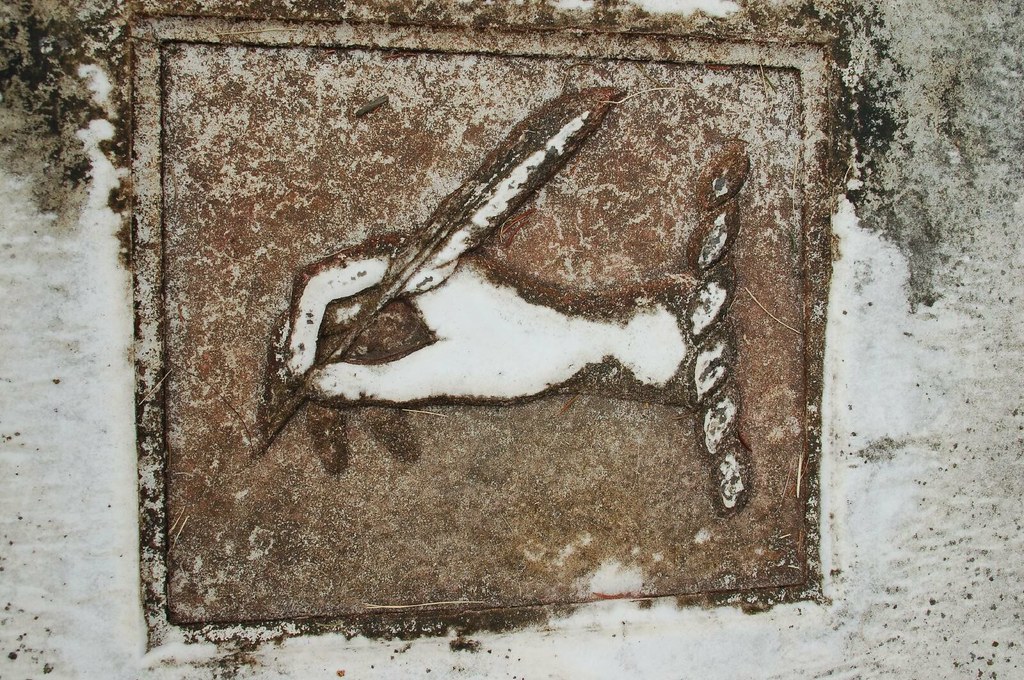 |
| "Hand with a quill pen" by Monceau is licensed under CC BY-NC-ND 2.0 |
Running has been relatively successful too.
Lastly, in the kitchen things have been going well.
 |
"Stack of Books - 023" by Daniel Weber is licensed under CC BY-NC 2.0 |
Celebrate other people's good news. I sometimes feel that academic has a toxic culture of always finding fault, rather than celebrating achievements. Some of my most joyful moments as a historian last year came from celebrating others' achievements or having them celebrate mine. I want to be the kind of person who enjoys a colleague's article or book, hears about their grant or job success, and sends them a note of congratulations.I can definitely point to some instances where I have done this but many more where I could have done and didn't. Still, with eight weeks left in the year there are definitely more opportunities to celebrate colleagues and friends.
In terms of my reading, I can still meet my goals to:
Some combination of these is still achievable but at this point I'm not sure which it will be. The hat and mittens might happen, or just one of them. The blanket
awaits a major blocking and sewing job before I can begin to tackle the
border.
And finally, my charitable and volunteering goals are still achievable.
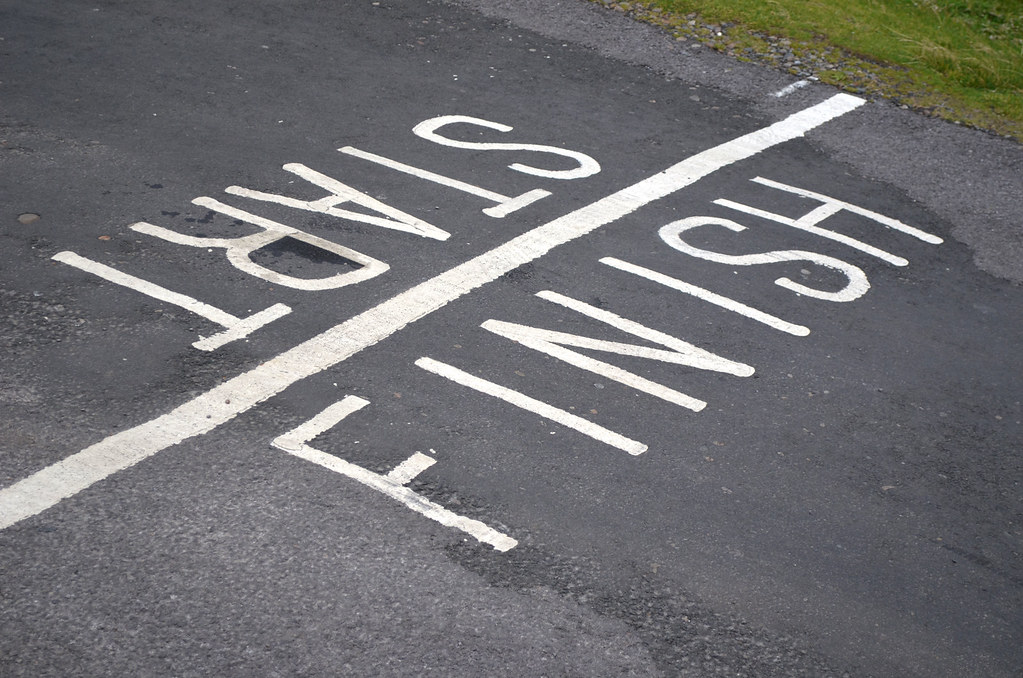 |
|
Looking back through this years post, I see I have only produced five posts tagged 'late antiquity'; somehow I thought there were more! Possibly, because I usually take longer to write those posts, they loom a bit larger in my mind. While I could, technically, still write seven more posts on late antiquity to produce twelve for the year, my other writing goals dump this one pretty firmly into the 'not happening' box.
Tomorrow is the New York City Marathon! I'm not a huge sports fan but started to get more into following the sport of running after following the US Olympic marathon trials. The women's field was the largest in American history, and there were so many amazing stories of talented women, from all walks of life, who ran it.
To qualify, all of these women ran a sub-2:45 marathon. To explain just how impressive this is: my marathon PR is 4:18 and the average woman in the UK finishes in 5:00:39. Most of us couldn't run a single mile at 2:45-pace, let alone 26 of them, but the qualifiers' stories of commitment and hard work really struck a chord with me. Then during the pandemic, I started listening to a lot of running podcasts to fill the road-racing gap in my life. And this led me to be more interested in long-distance running as a professional sport.
New York is, of course, one of the big races for the pros, and I'm cheering on the following folks in particular.